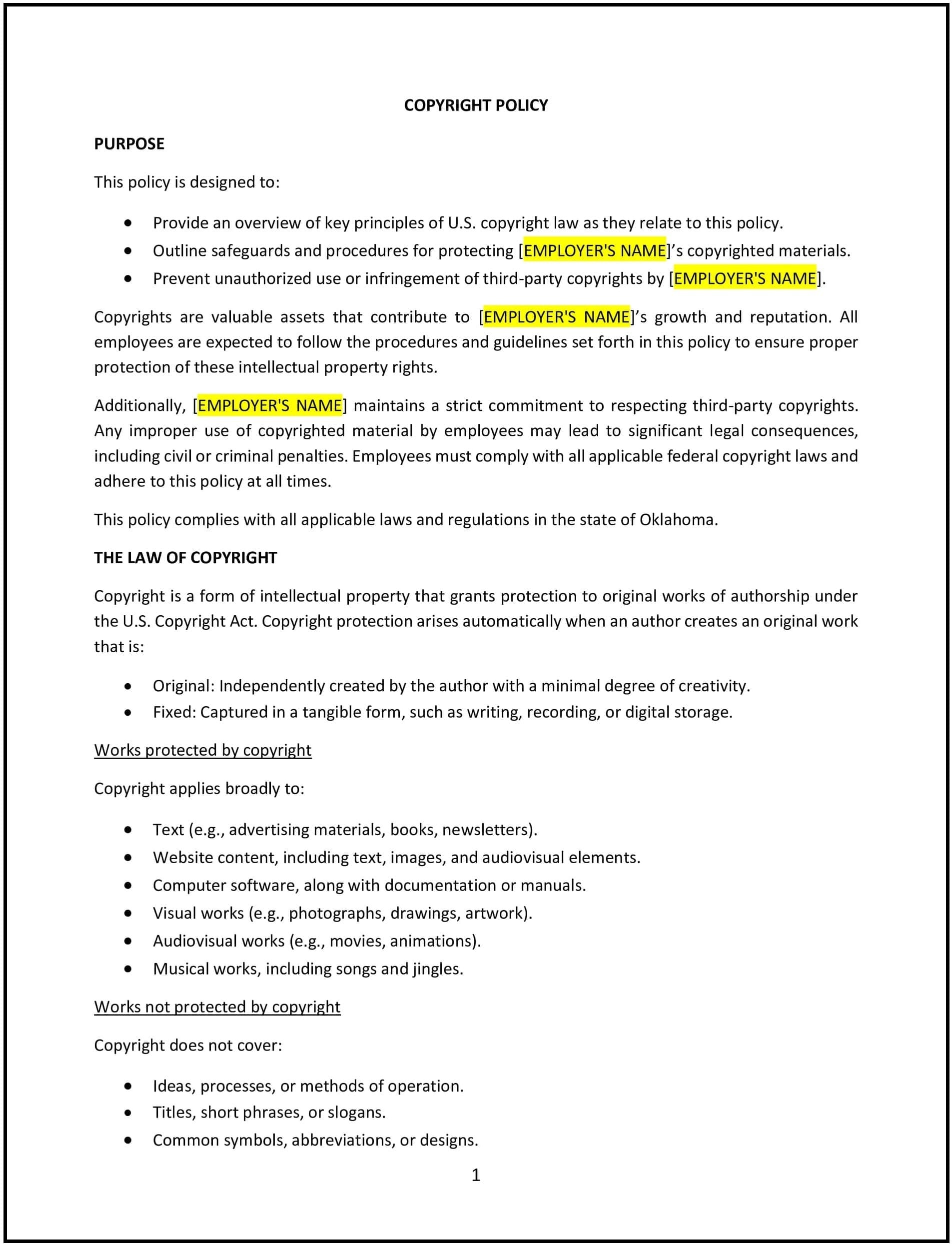Got contracts to review? While you're here for policies, let Cobrief make contract review effortless—start your free review now.

Customize this template for free
Copyright policy (Oklahoma)
This copyright policy is designed to help Oklahoma businesses protect intellectual property rights and ensure compliance with copyright laws. The policy outlines guidelines for using copyrighted materials, employee responsibilities, and procedures for addressing copyright infringement.
By implementing this policy, businesses can safeguard their original content while avoiding legal risks associated with unauthorized use of copyrighted works.
How to use this copyright policy (Oklahoma)
- Define copyright protection: Specify what types of content are protected, such as written materials, images, software, and creative works.
- Establish usage guidelines: Outline how employees can use copyrighted materials, including proper attribution and licensing requirements.
- Address employee-created works: Define ownership rights for content created by employees during work hours or using company resources.
- Implement infringement procedures: Detail the steps to report and address suspected copyright violations.
- Require copyright compliance training: Educate employees on copyright laws and company policies.
- Outline licensing and fair use: Specify when copyrighted materials can be used under fair use principles or when a license is required.
- Review regularly: Periodically assess the policy to align with changing copyright laws and business needs.
Benefits of using this copyright policy (Oklahoma)
Implementing this policy provides several advantages for Oklahoma businesses:
- Protects intellectual property: Ensures that company-owned content is safeguarded from unauthorized use.
- Reduces legal risks: Helps businesses avoid copyright infringement claims.
- Provides clarity: Establishes clear guidelines on copyright compliance for employees.
- Strengthens brand integrity: Reinforces the responsible use of copyrighted materials in marketing, product development, and communications.
- Reflects Oklahoma-specific business considerations: Tailors copyright protection strategies to local industries and legal requirements.
Tips for using this copyright policy (Oklahoma)
- Train employees: Educate staff on proper copyright usage and licensing requirements.
- Use licensed content: Ensure the business only uses legally acquired copyrighted materials.
- Monitor content usage: Implement procedures to review and approve copyrighted materials before use.
- Document ownership rights: Clearly define copyright ownership for employee-created content.
- Address copyright disputes: Establish protocols for handling copyright claims or infringement issues.